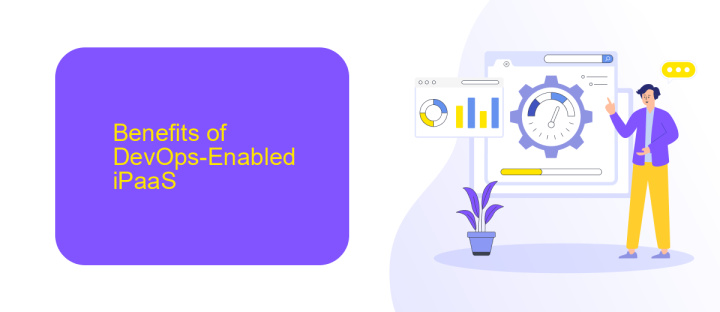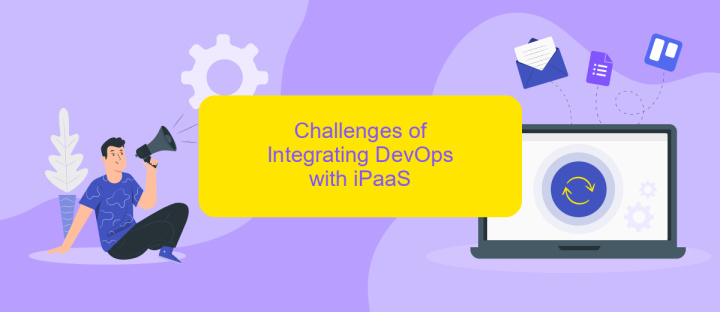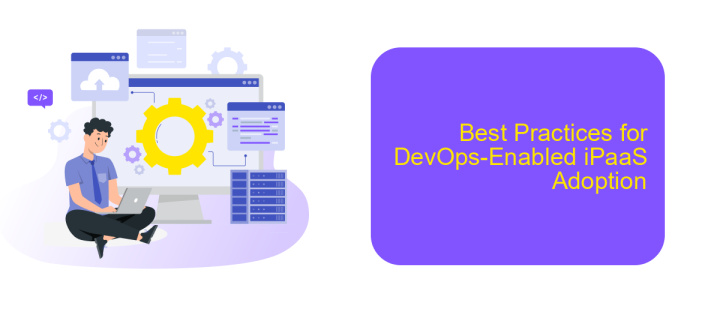iPaaS Habilitadas Para Devops
In the rapidly evolving world of DevOps, Integration Platform as a Service (iPaaS) solutions are becoming increasingly essential. These platforms streamline the integration of various tools and services, enabling seamless workflows and enhancing efficiency. By leveraging iPaaS, organizations can accelerate their development cycles, improve collaboration, and ensure robust, scalable architectures that meet the demands of modern software development.
Introduction to DevOps-Enabled iPaaS
DevOps-enabled Integration Platform as a Service (iPaaS) represents a significant advancement in the way organizations manage their software development and integration processes. By incorporating DevOps principles, iPaaS solutions streamline workflows, enhance collaboration, and accelerate the deployment of applications and services.
- Automated integration workflows
- Continuous deployment and monitoring
- Enhanced collaboration between development and operations teams
- Scalability and flexibility in integration
- Improved system reliability and performance
One such platform that exemplifies these capabilities is ApiX-Drive. ApiX-Drive enables seamless integration of various applications and services, automating data transfer and synchronization. This not only reduces the manual effort involved but also ensures that integrations are reliable and efficient. By leveraging ApiX-Drive, organizations can achieve faster time-to-market, improved operational efficiency, and a more agile development environment.
Benefits of DevOps-Enabled iPaaS

DevOps-enabled iPaaS solutions streamline the integration and deployment processes, fostering a more agile and efficient development environment. By automating routine tasks and facilitating seamless communication between disparate systems, these platforms enhance productivity and reduce the time-to-market for new applications. This results in a more responsive and adaptable IT infrastructure, capable of meeting evolving business needs and customer demands with greater precision and speed.
Moreover, the integration capabilities offered by services like ApiX-Drive simplify the connection between various applications and data sources, eliminating the need for manual coding and complex configurations. This not only reduces the risk of errors but also allows teams to focus on higher-value tasks, such as innovation and optimization. The ability to quickly and reliably integrate different systems ensures that organizations can leverage their existing technology investments while continuously improving their operational efficiency and scalability.
Challenges of Integrating DevOps with iPaaS

Integrating DevOps with iPaaS presents several challenges that organizations must navigate to achieve seamless operations and efficient workflows. These challenges can impact the effectiveness of both DevOps practices and iPaaS solutions, potentially hindering productivity and innovation.
- Complexity of Integration: Combining multiple tools and platforms can create a complex environment that requires sophisticated management and oversight.
- Data Security: Ensuring data security across various integrated systems is crucial, as vulnerabilities in one system can compromise the entire ecosystem.
- Scalability Issues: As organizations grow, the scalability of integrated systems can become a bottleneck, necessitating continuous adjustments and optimizations.
- Compatibility Concerns: Ensuring that different tools and platforms work harmoniously together can be challenging, especially when dealing with legacy systems.
- Monitoring and Maintenance: Continuous monitoring and maintenance are essential to ensure that integrations remain functional and efficient over time.
Services like ApiX-Drive can help mitigate some of these challenges by providing a streamlined platform for integrating various applications and automating workflows. By leveraging such services, organizations can reduce the complexity and improve the efficiency of their DevOps and iPaaS integrations.
Best Practices for DevOps-Enabled iPaaS Adoption

Adopting an iPaaS solution enabled for DevOps can significantly enhance your integration processes and streamline workflows. To ensure a successful implementation, it's crucial to follow best practices that align with both DevOps principles and the capabilities of your chosen iPaaS platform.
Firstly, prioritize automation in your integration processes. Automation reduces human error and accelerates deployment cycles, making your operations more efficient. Secondly, ensure continuous monitoring and feedback loops to identify and address issues promptly.
- Automate integration workflows using tools like ApiX-Drive.
- Implement continuous monitoring and logging.
- Foster collaboration between development and operations teams.
- Regularly update and maintain integration configurations.
By adhering to these best practices, you can leverage the full potential of DevOps-enabled iPaaS solutions. Tools like ApiX-Drive can further facilitate seamless integrations, allowing you to focus on innovation and efficiency. This approach ensures that your DevOps and integration strategies are aligned, resulting in a more agile and responsive IT environment.
Conclusion
In conclusion, iPaaS solutions are indispensable for modern DevOps environments, offering seamless integration and automation capabilities that streamline workflows and enhance productivity. These platforms enable teams to efficiently manage complex integrations, reduce manual intervention, and ensure consistent deployment processes.
One such solution, ApiX-Drive, exemplifies the power of iPaaS by providing a user-friendly interface for setting up integrations without the need for extensive coding knowledge. By leveraging tools like ApiX-Drive, organizations can accelerate their DevOps initiatives, improve collaboration, and achieve faster time-to-market for their applications. As the demand for agile and scalable solutions continues to grow, iPaaS platforms will remain a critical component in the DevOps toolkit.


FAQ
What is iPaaS and how does it relate to DevOps?
How can iPaaS improve DevOps workflows?
What are the key features to look for in an iPaaS solution for DevOps?
How does ApiX-Drive facilitate automation and integration for DevOps?
Can iPaaS solutions handle both cloud-based and on-premises applications?
Apix-Drive will help optimize business processes, save you from a lot of routine tasks and unnecessary costs for automation, attracting additional specialists. Try setting up a free test connection with ApiX-Drive and see for yourself. Now you have to think about where to invest the freed time and money!

